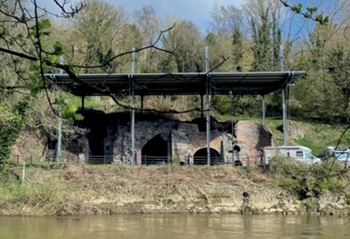Smart cities market
The global smart cities market is expected to be valued at US$1,265.85 bn by 2019 due to solid growth prospects across the world.
By application, the smart cities market is led by the smart transportation sector, whose contribution is estimated to be US$140.8 bn by 2016 and close to US$216 bn by 2019. Smart security and smart industrial automation are also likely to receive increasing demand in the coming years.
In terms of geography, solid government support to smart city technologies in North America is expected to help that regional market retain its dominant share in the coming years. The increasing use of advanced traffic management systems in North America is likely to be crucial to the market’s growth.
One of the key drivers for the global smart cities market is the increasing environmental awareness among the global population. This has led to a significant demand for eco-centric smart city projects. Governments have also been supportive of smart city initiatives that aim to reduce waste and boost the economic development of the city. The development of solar energy as a viable alternative energy source is a key contributor to the growth of the global smart cities market.
However, electronic waste, a byproduct of the firm establishment of the digital age, has become a major concern. Since most electronic waste is nonbiodegradable, it can pollute the environment and can present health hazards to the wildlife around disposal sites. This has led to the need for smart waste management systems that can automate the recycling of electronic waste and properly dispose of the remainder. This is likely to become a leading contributor in the global smart cities market in the coming years.
Migration to urban areas is another crucial driver for the global smart cities market. The lack of significant economic opportunities in rural areas and a reduction in the amount of arable land has led to rural inhabitants moving to cities to seek better economic prospects. This has put an increasing strain on natural resources, driving popular support for smart city solutions, which can reduce the exploitation of natural resources while keeping economic development intact.
On the other hand, concerns about the security of the data collected in order to implement smart city infrastructure persist due to the increasing occurrence of cyber-crime. The consistent technological advancement in the smart cities industry is likely to lead to the development of systems with comprehensive security features, but some risk of data leaks is likely to remain due to the dynamic nature of malware and hacking.
Featured articles and news
Art of Building CIOB photographic competition public vote
The last week to vote for a winner until 10 January 2025.
The future of the Grenfell Tower site
Principles, promises, recommendations and a decision expected in February 2025.
20 years of the Chartered Environmentalist
If not now, when?
Journeys in Industrious England
Thomas Baskerville’s expeditions in the 1600s.
Top 25 Building Safety Wiki articles of 2024
Take a look what most people have been reading about.
Life and death at Highgate Cemetery
Balancing burials and tourism.
The 25 most read articles on DB for 2024
Design portion to procurement route and all between.
The act of preservation may sometimes be futile.
Twas the site before Christmas...
A rhyme for the industry and a thankyou to our supporters.
Plumbing and heating systems in schools
New apprentice pay rates coming into effect in the new year
Addressing the impact of recent national minimum wage changes.
EBSSA support for the new industry competence structure
The Engineering and Building Services Skills Authority, in working group 2.
Notes from BSRIA Sustainable Futures briefing
From carbon down to the all important customer: Redefining Retrofit for Net Zero Living.
Principal Designer: A New Opportunity for Architects
ACA launches a Principal Designer Register for architects.




















